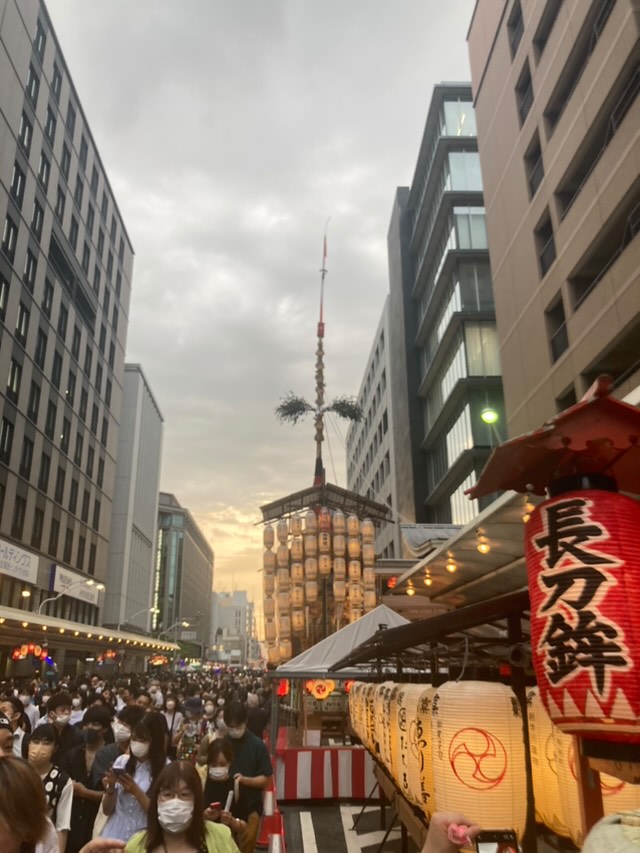Getting with the program
MVHS alum recount their experiences in specialized programs
October 5, 2022
Internships
Sitting among scattered One Night Werewolf cards, MVHS alum ‘16 May Cui felt she had found a community among the people she met during her freshman year summer internship at Facebook University. Cui initially attended the University of California, Berkeley as a sociology major, as in high school, she believed she would “probably not be a very good software engineer” despite her high performances in math and computer science classes. However, after she got into her first of three computer-science focused internships at UCB, Facebook University, Cui chose to double major in Sociology and Computer Science.
Facebook University, now called Meta University, is an introductory summer internship in Menlo Park for students who are interested in computer science. The application was unconventional, as unlike other computer science internships, it focused on essay prompt responses and behavioral-focused interviews over resumes and technical proficiency. Cui heard about the program through word-of-mouth and applied because it was “more up her alley” of humanities writing. After being accepted, Cui went through three weeks of mobile app development training and five weeks of hands-on activity, creating an “anti-Facebook” Android app that used demographics and preferences to find diverse news and subvert the echo-chambers of social media.
“Coming out of MVHS, where a lot of people specialize in STEM and a lot of high schoolers have already learned how to code, I always had this impression that I was already behind,” Cui said. “But I think that internship experience made me realize that I wasn’t behind, this is what I wanted to do.”
Although Cui found value in the opportunities at Facebook, she didn’t connect with the “aggressive” promotion of social values of “leaving a good impact on the world” that was plastered on posters and present at every meeting from a large company that made controversial decisions. Cui’s ethical and moral interests were better aligned at her junior year internship with Tally, a San Francisco fintech company, as she could use software development to assist people with refinancing their credit card debt.
In the beginning, Cui felt the need to prove that she wasn’t just at these internships to fit a company’s gender and racial diversity agendas. Over time, she has felt less imposter syndrome and asks questions to better understand her projects. While it would’ve been easy for Cui to gravitate towards her comfort zone, she has used internships as a way of exploring potential careers.
“Everything’s kind of a spectrum, so it’s hard to find that right balance and [be] honest to yourself about those trade-offs,” Cui said. “I would say right now my job is definitely not the most well paid [even though] it can be for software engineers. It’s not super lucrative, but it’s definitely enough. The amount of extra passion I feel or just general feel-goodness I have about what I’m doing definitely makes up for it. You tinker with the values — it’s not zero or one.”
Research
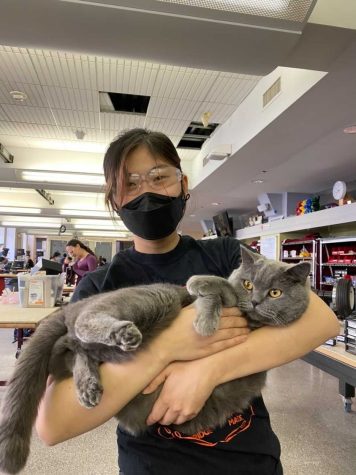
During the fall of her freshman year at the Massachusetts Institute of Technology (MIT), MVHS alum ‘20 Audrey Cui applied for the Undergraduate Research Opportunities Program (UROP). While she was initially hesitant, Cui applied after recalling something she had heard in her high school English class — men apply when they meet 60% of the job requirements, while women only tend to apply after meeting 100% of the requirements.
At UROP, Cui says she had the opportunity to collaborate and contribute to real research. An example of the research she worked on is relighting light sources in images.
“We did this by generating pairs of fake images with different lighting conditions to train a model that does image-to image-translation,” Cui said. “This model learns how to ‘translate’ an image under certain lighting into the same scene but with another lighting condition.”
Furthermore, UROP allowed Cui to explore her interests in a community of people who she respected, including her mentor David Bau, an older grad student who had worked as a software engineer before getting a PhD. Cui believes Bau is a “really wise person” and guided her throughout her research and was there for her with his “happy go lucky personality.”
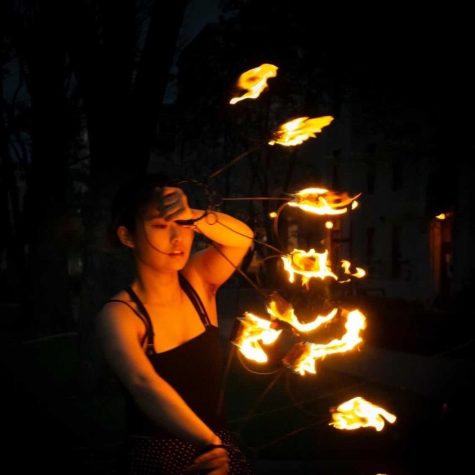
However, there are times in research where Cui is unable to rely on others and has to deal with challenges. Cui recalls a time when a research paper she worked on for 20 hours was rejected from publication. Though she says the initial rejection was detrimental to her mental health and drove her into a wall of burnout and a lack of motivation, Cui ultimately learned to separate herself from work and academics. Her change in mindset allowed her to be more comfortable and take time for herself.
“At the end of the day, if you get into MIT, that’s great,” Cui said. “If you don’t get into MIT, at least you spent your time doing what you enjoy and care about. Probably, [furthering yourself as a person] more than MIT would. I think it’s great that MIT definitely has the resources to help you develop these passions further, but to be honest, other schools do as well. At the end of the day, just do what you enjoy and make yourself happy.”
Studying abroad
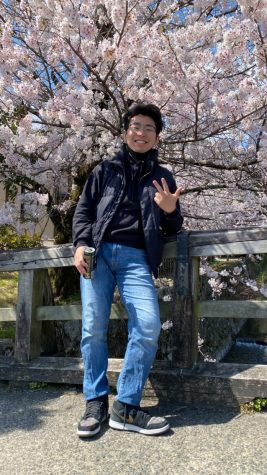
The color pink filled his vision as the springtime sakura blossoms bloomed in Kyoto, Japan. Among the conversations of Japanese pedestrians, the vastly different languages of English, Spanish, Vietnamese and Japanese dialects spoken by his friends and roommates surrounded him. Walking in the crisp air with a group of international and Japanese students, MVHS alum ‘21 Neo Nishino felt the moment was surreal.
Although Nishino currently attends Ritsumeikan University in Osaka, Japan, studying abroad in an English-based international program for a Community and Regional Policy Sciences Major it was never his plan. Despite holding dual citizenship, Nishino has lived a majority of his life in the U.S., only residing in Japan for a single year in fourth grade. Given the cheaper tuition and opportunities to connect with his culture and find work in Japan, Nishino decided that this was the best path for him to take.
Other than the fact that “a good population” is Asian, Nishino noticed that compared to Cupertino, studying in Osaka is “a 180 degree difference,” specifically noting that Japan is a country that could “fit inside of California” with a train system that could take him virtually anywhere in the country. In terms of his school, Nishino notes that Ritsumeikan has a larger campus, food that is both cheaper and better-tasting than MVHS’s and a significantly lighter workload than at MVHS.
“You realize how advanced MVHS’s level is,” Nishino said. “You guys are crazy smart and that’s the thing. You [also] realize how diverse MVHS is despite it being in America [because] you learn a lot. [In Japan], I might be in a class talking about cultural encounters — they might be talking about China as if you’ve never heard about China or never talked to anyone Chinese, but I’ve kind of done that every day [in Cupertino]. I mean, heck, I’ve been to their house, to their parents’ houses and talked with their parents. So I’ve definitely been better equipped than most people.”
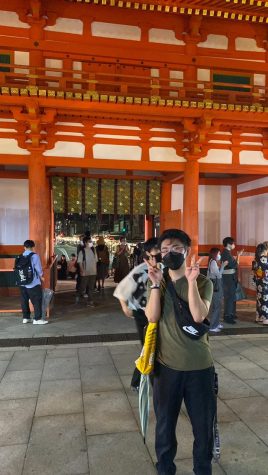
Although Nishino is the “black cat living abroad,” he doesn’t feel like he has left his life in Cupertino behind. Instead, he has set himself on “a different set of rails” that has led him to a new country and future that better aligns with the life he has always imagined. While living in Japan comes with its challenges, Nishino has been able to do things that others “just see in an anime” — such as attending night festivals, going to temples and participating in club activities. As for future goals, Nishino has set his eyes on working as a liaison between Japan and foreign countries. Since living abroad, Nishino has realized that he will always be responsible for his Japanese culture, but his home will always be the Bay Area.
“Because you live in Cupertino and you go to MVHS, you don’t realize how rare your gift is — of speaking two languages and knowing what America and other places [are] like,” Nishino said. “You realize that you’re a needle in the haystack and people will look for that and they will pay a lot of money for that … You’ll come to learn that you’re different [and] you’ll come to value your life a lot more. ”

